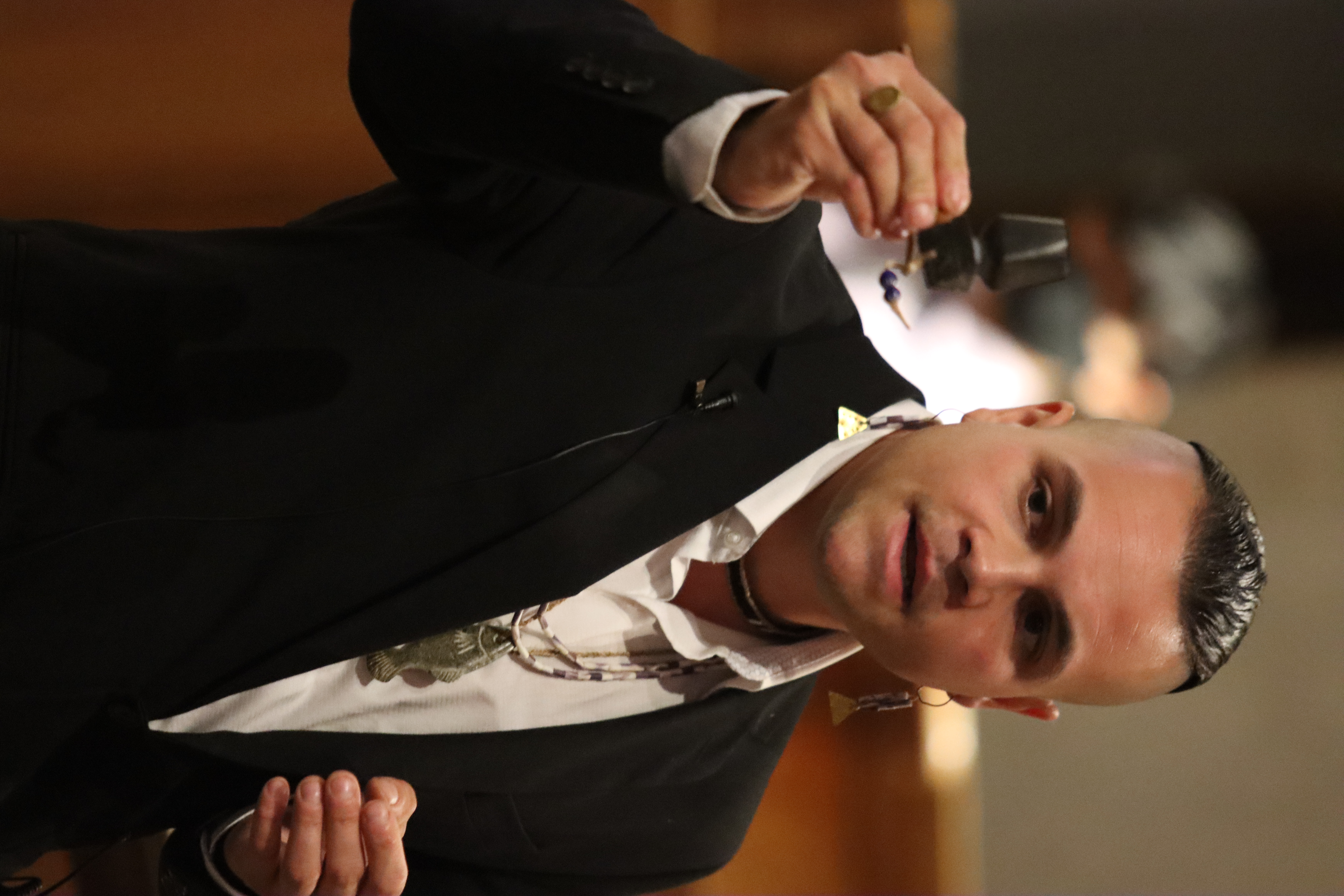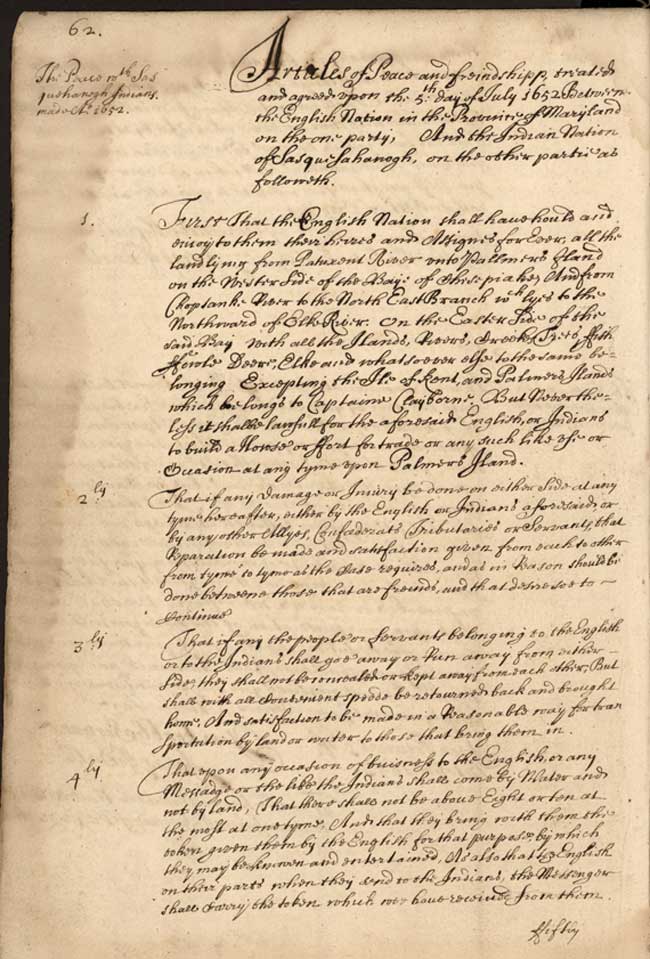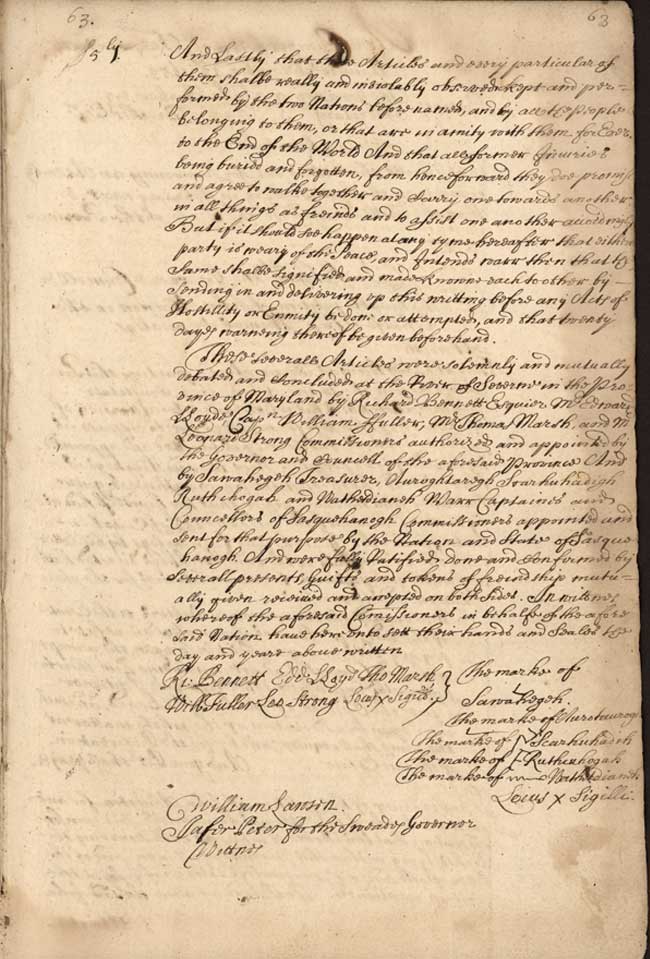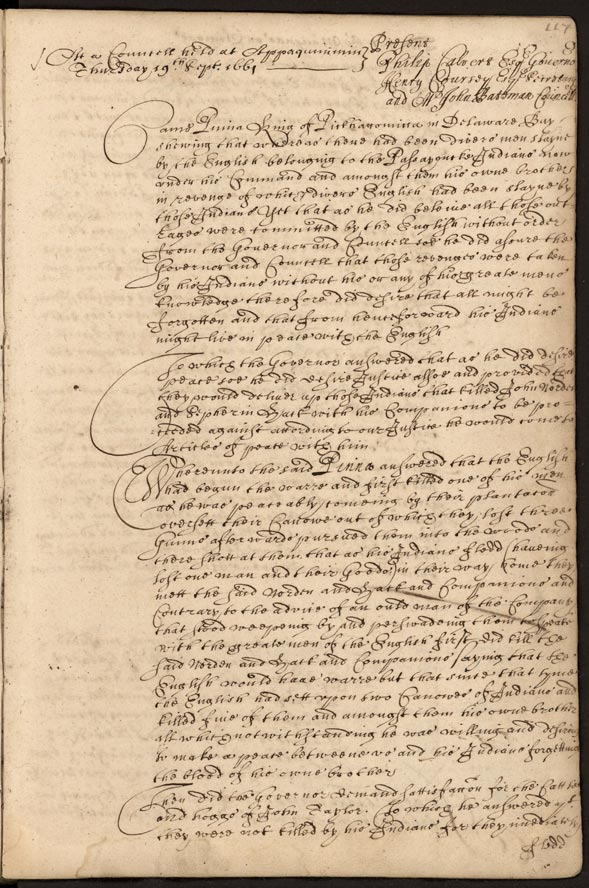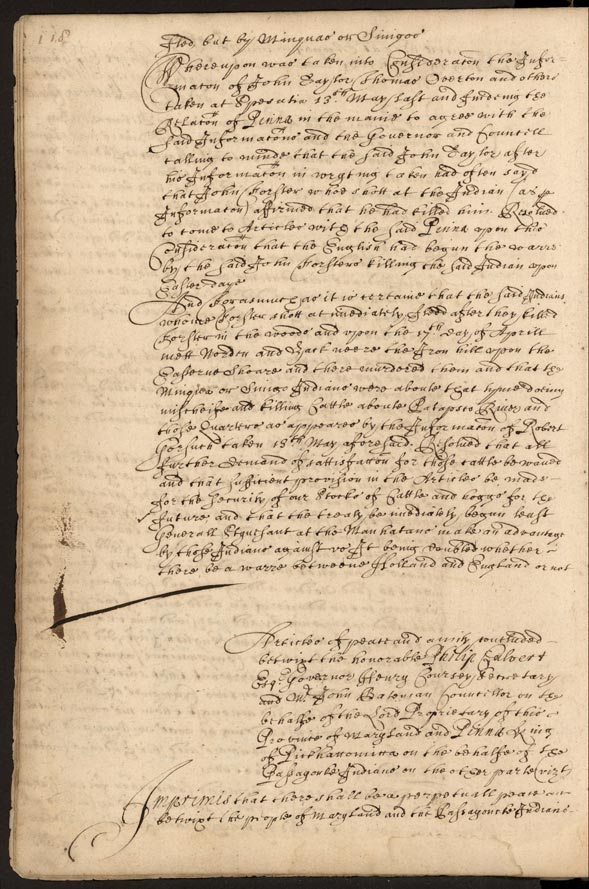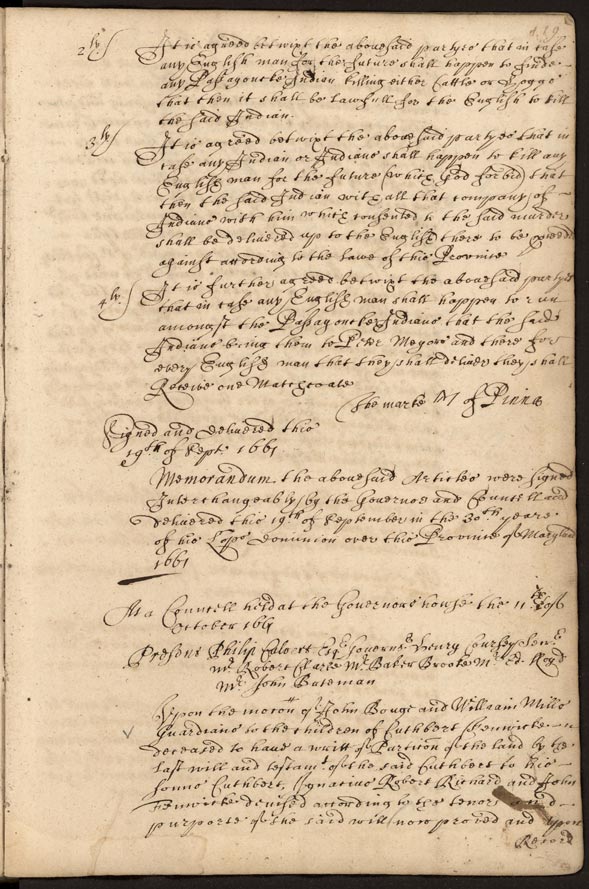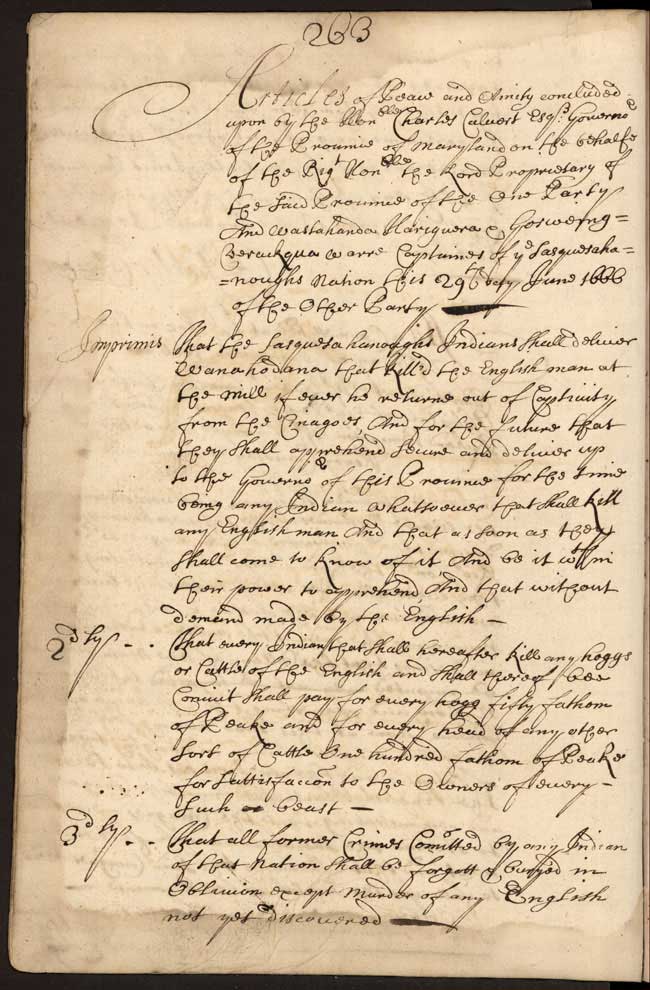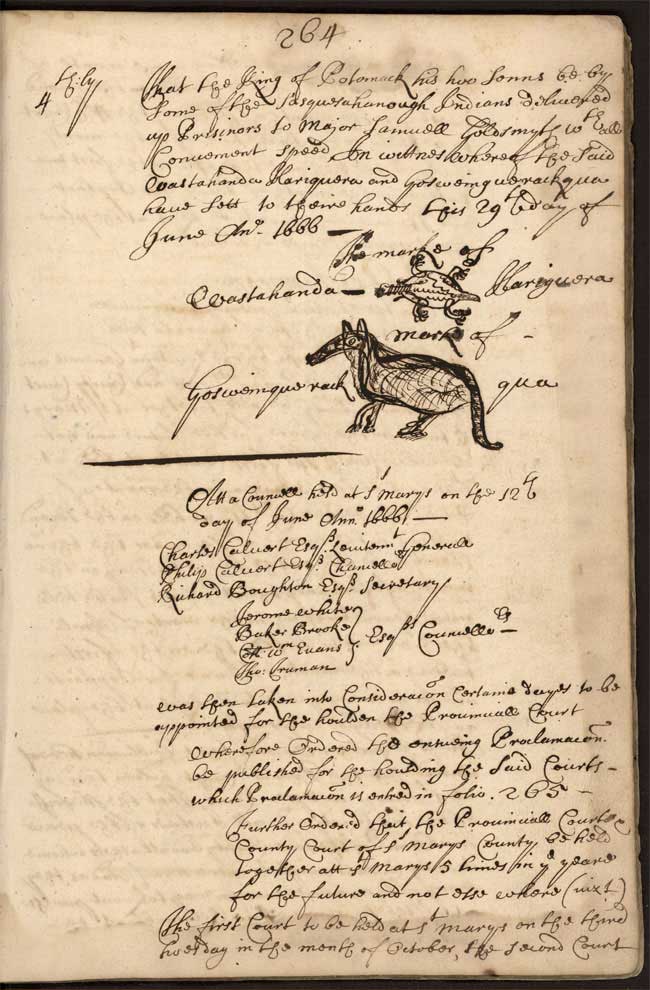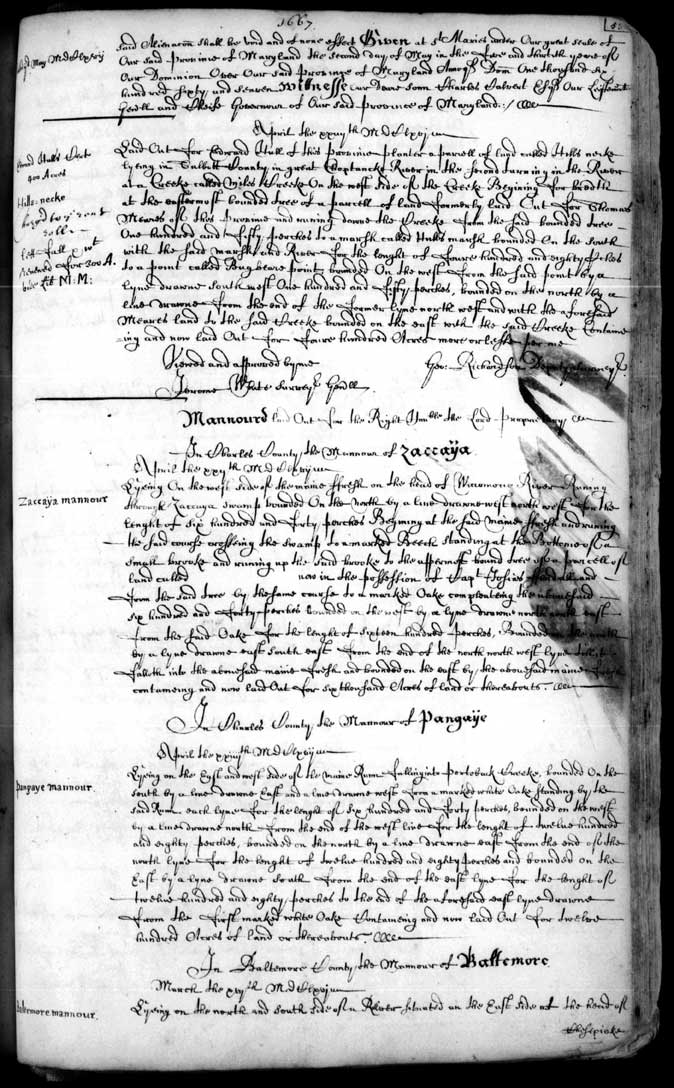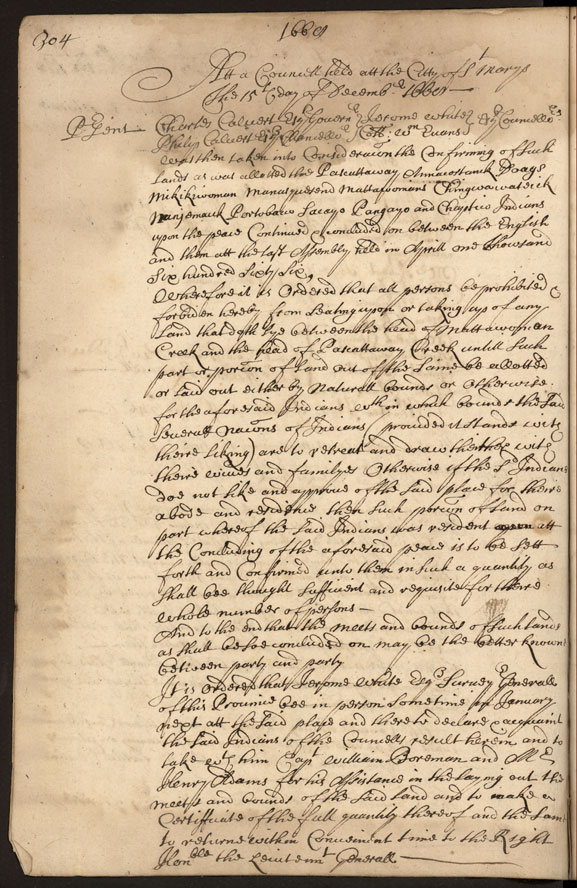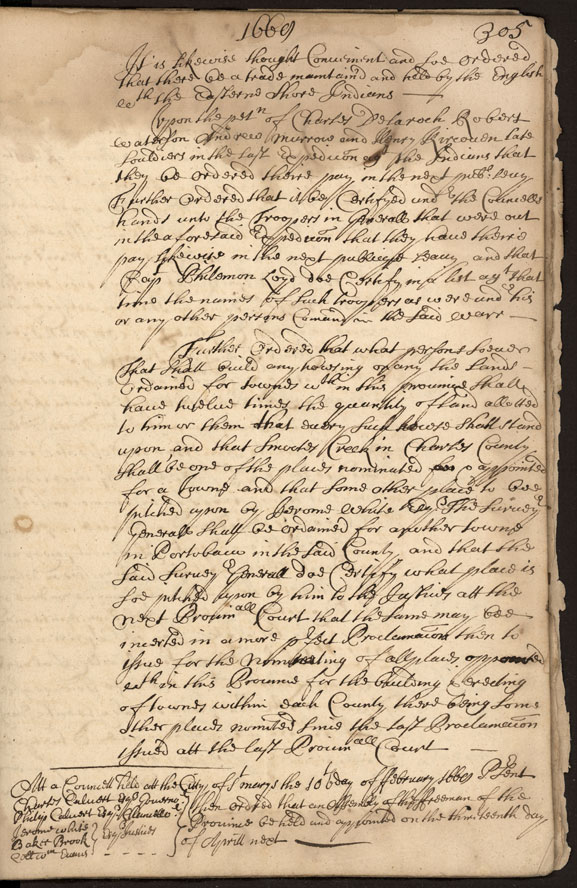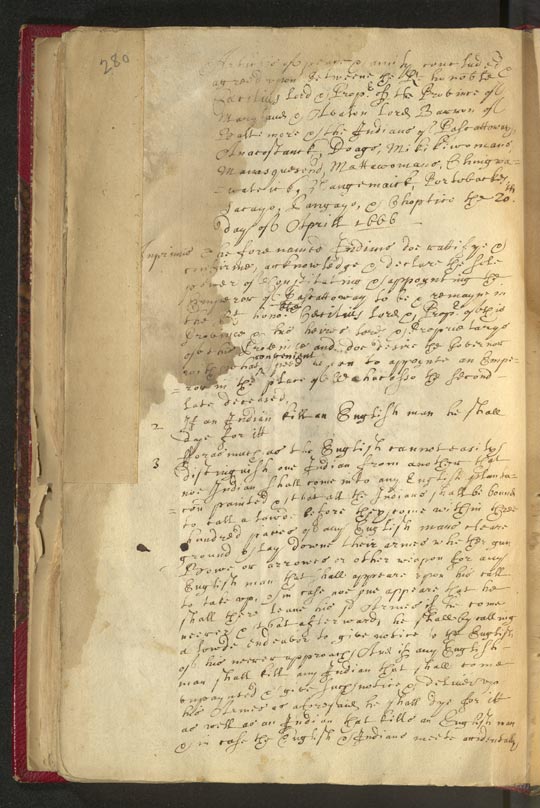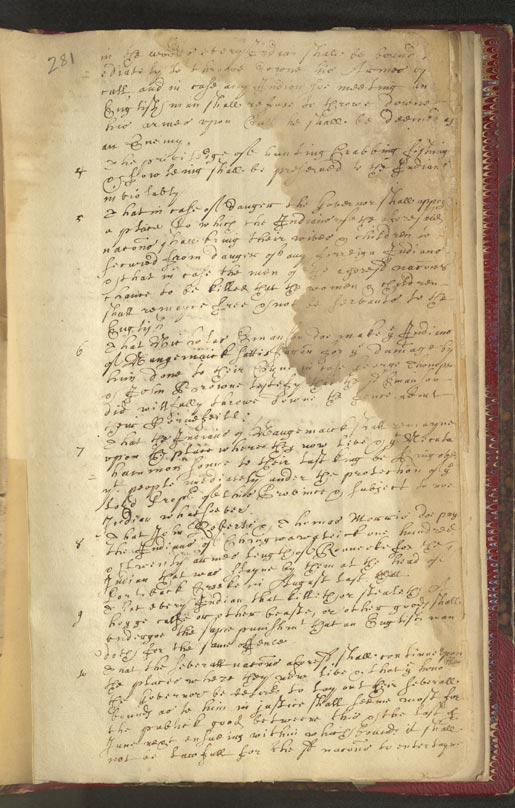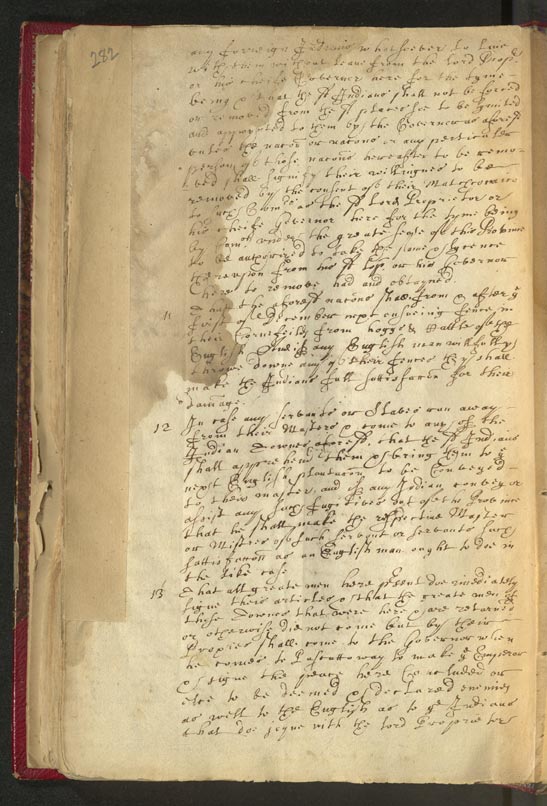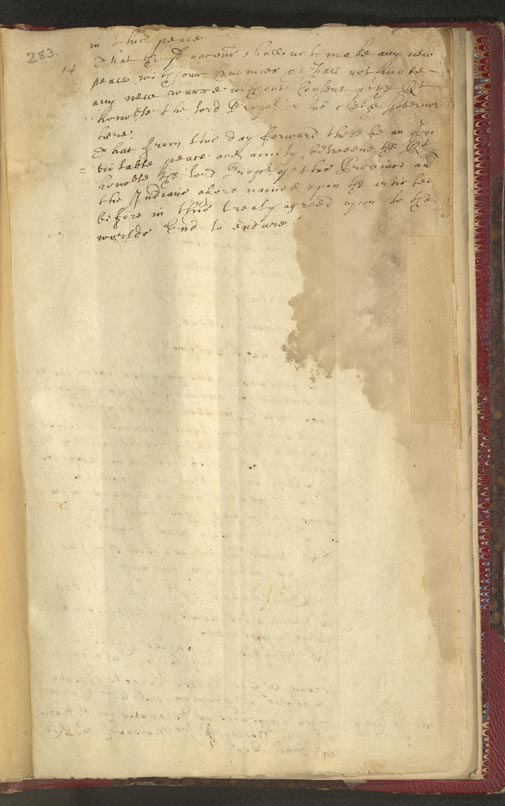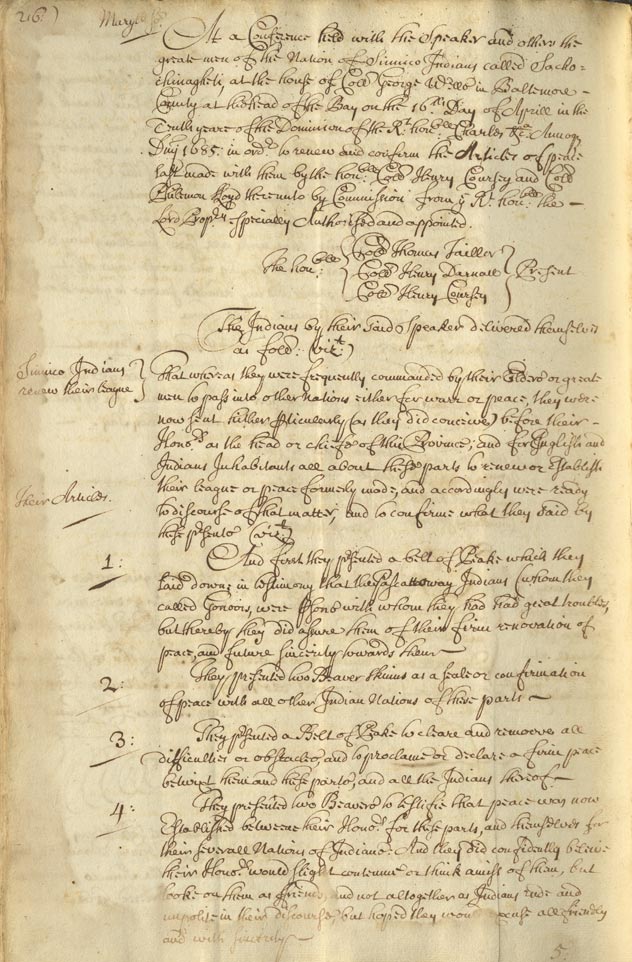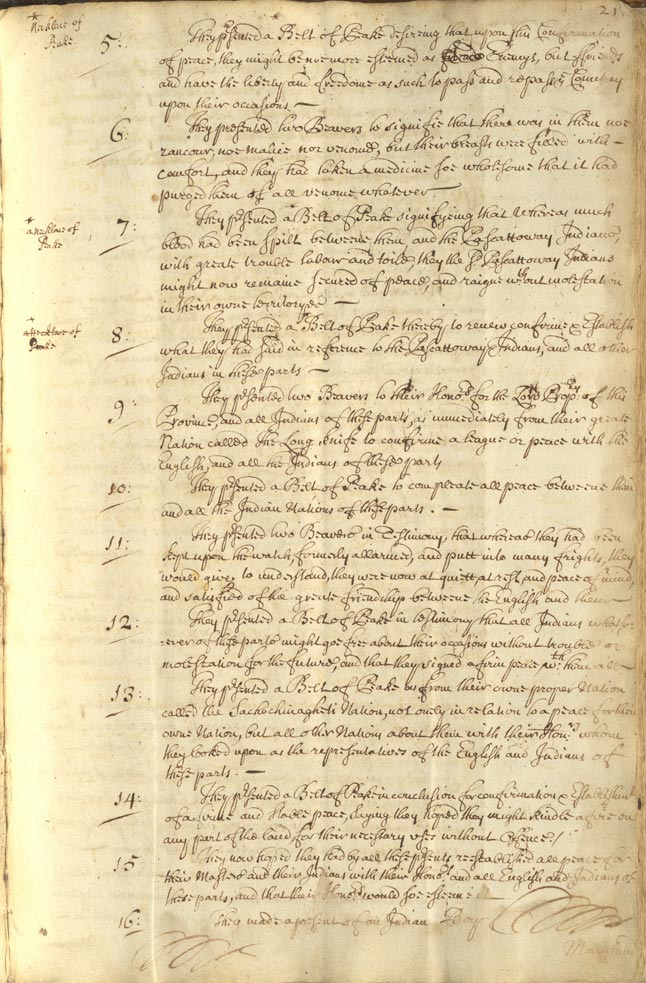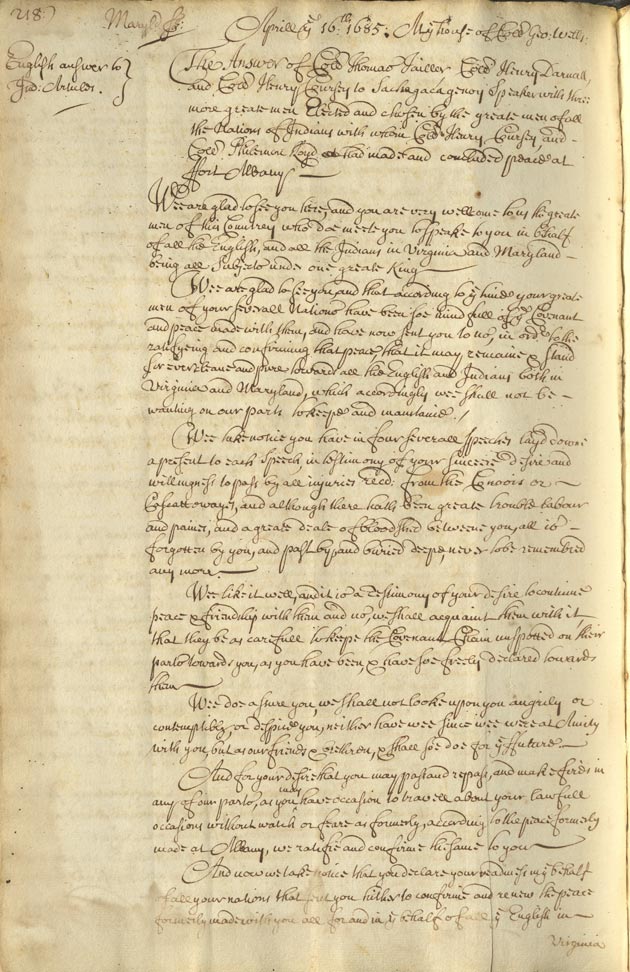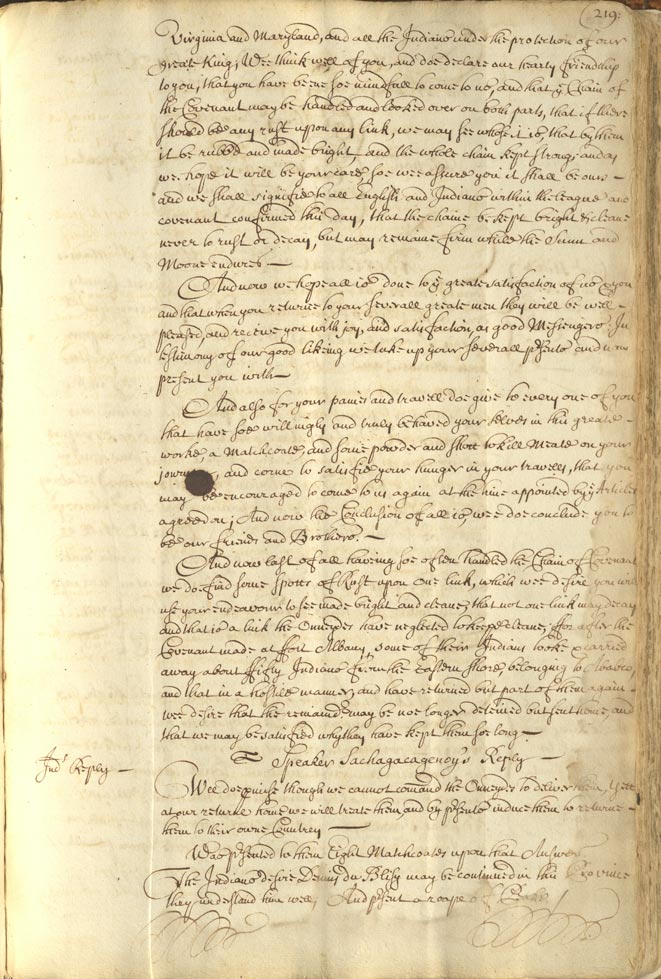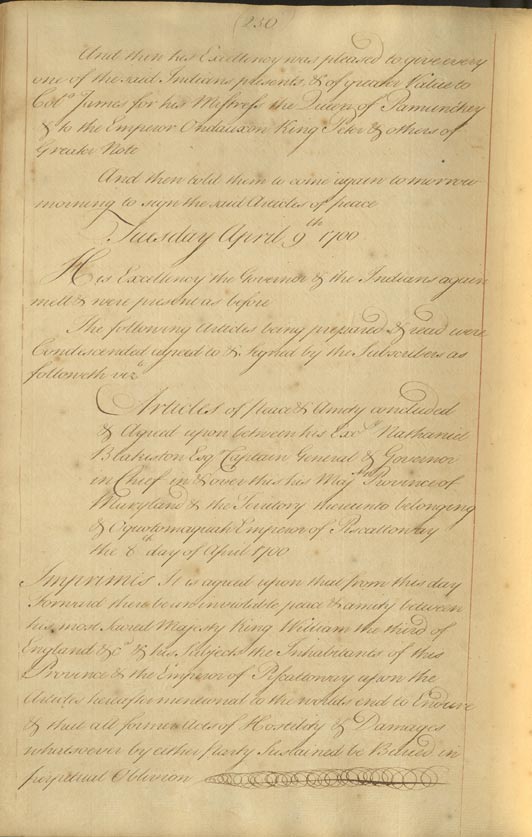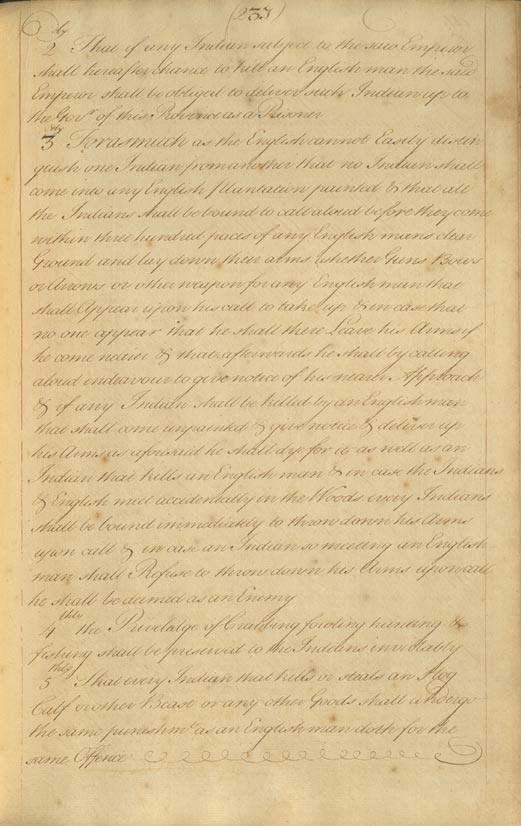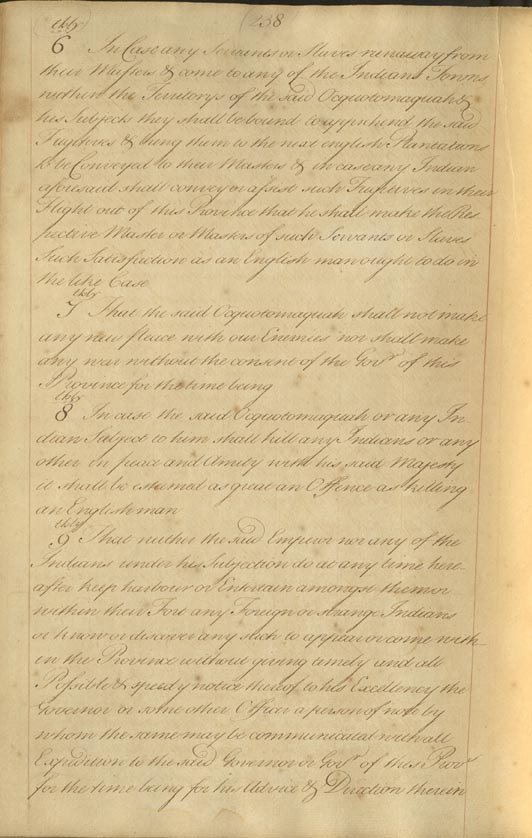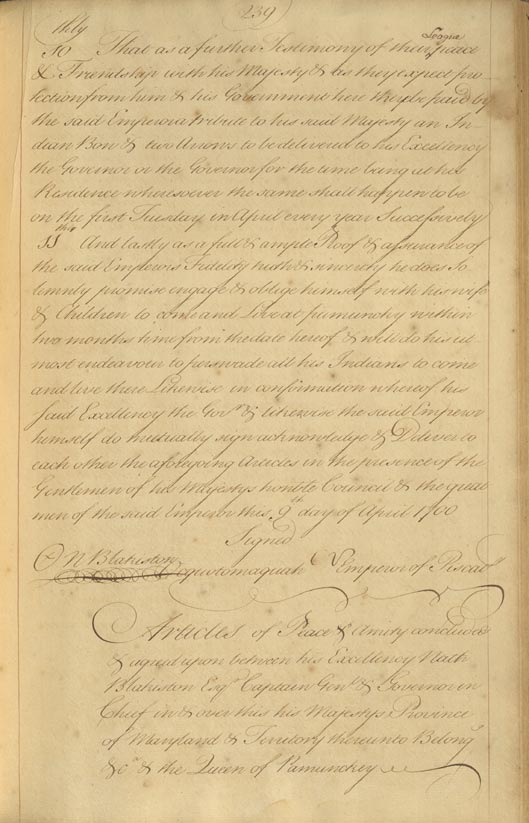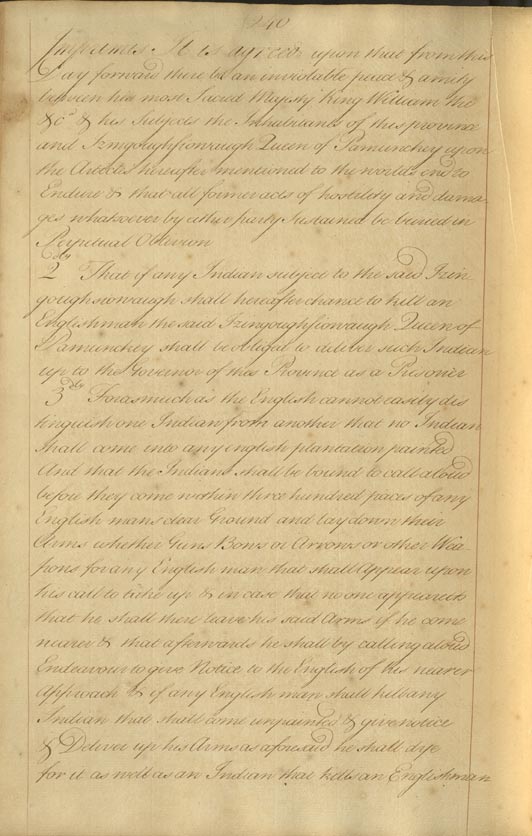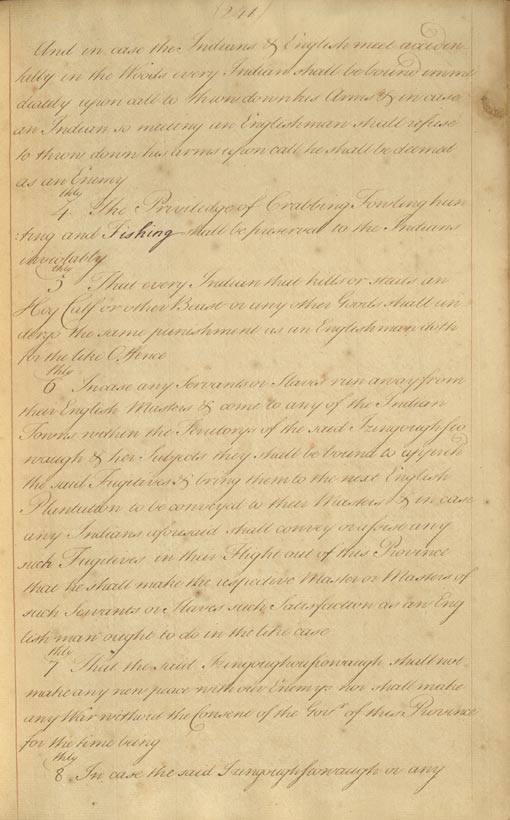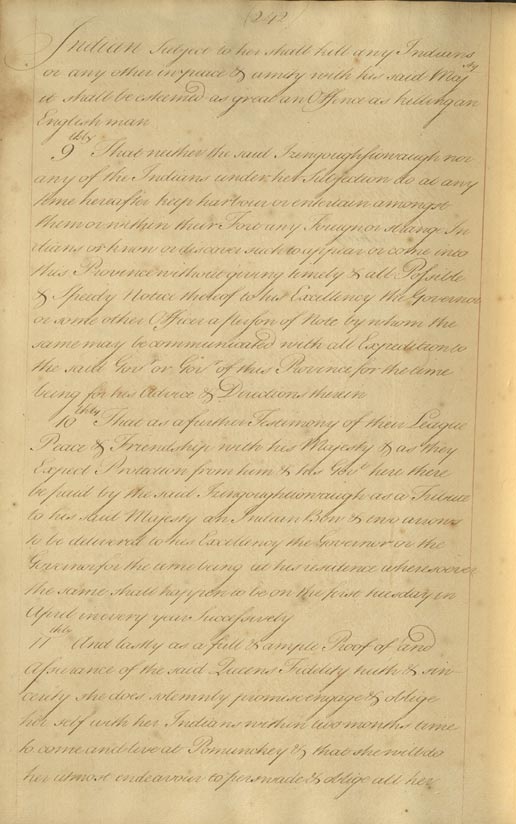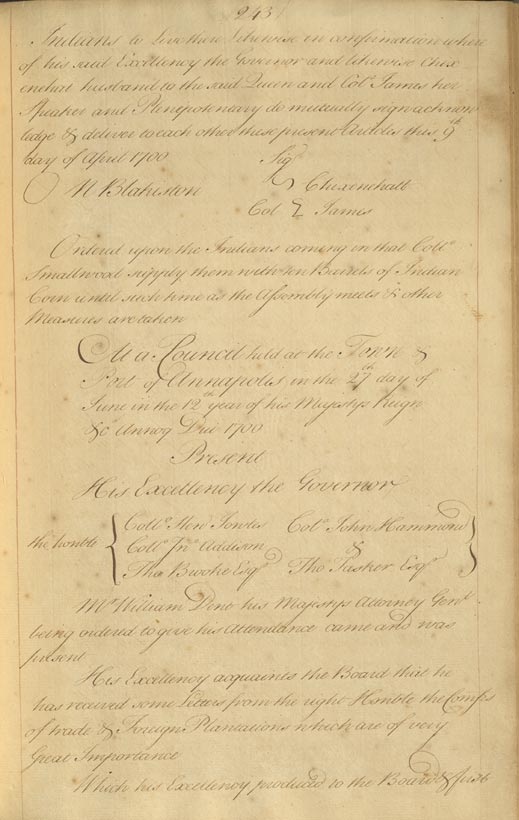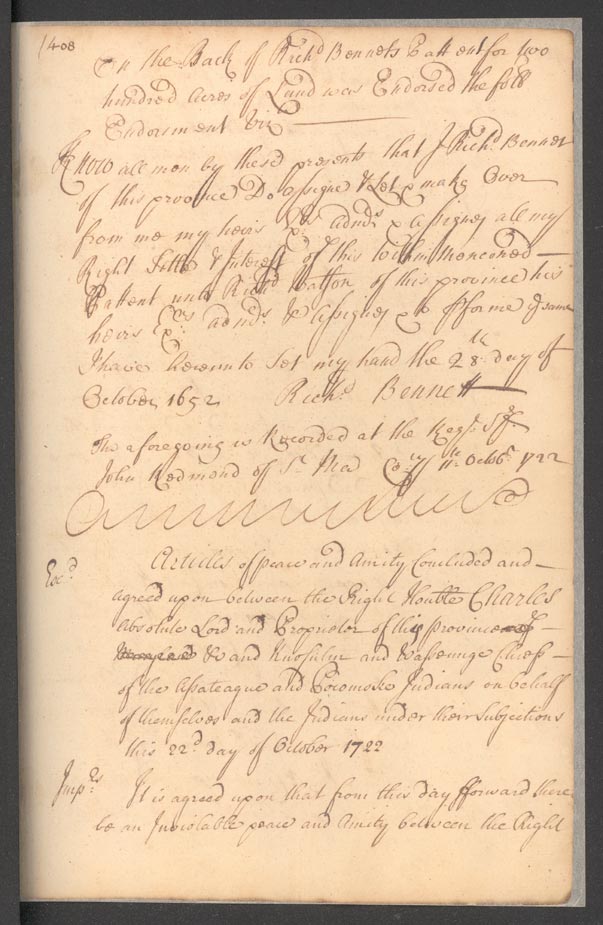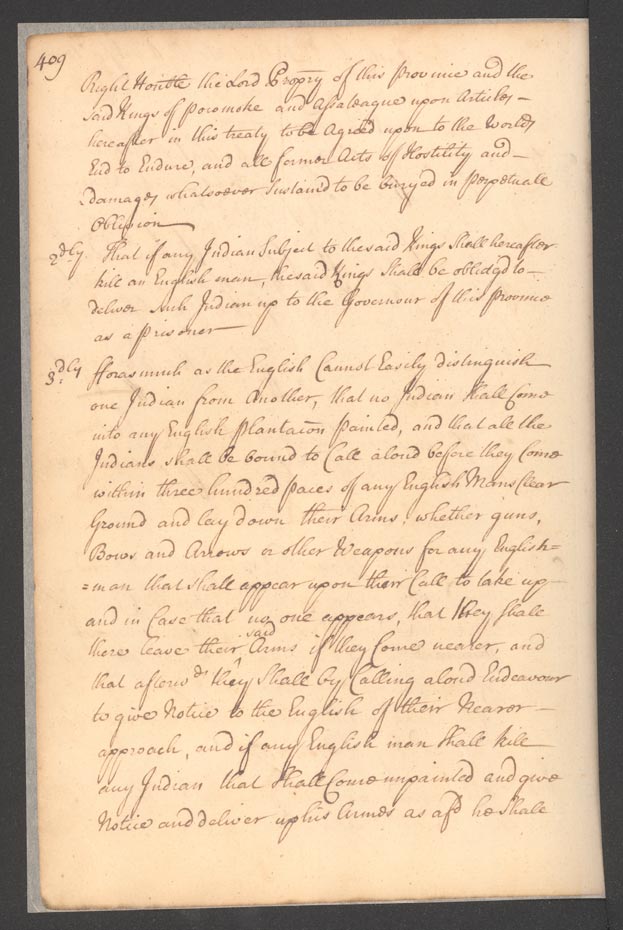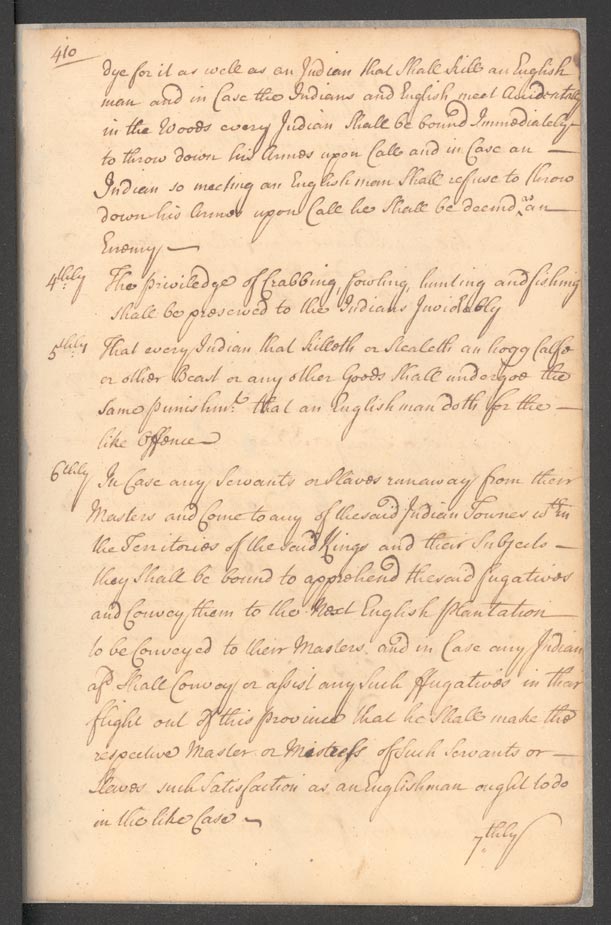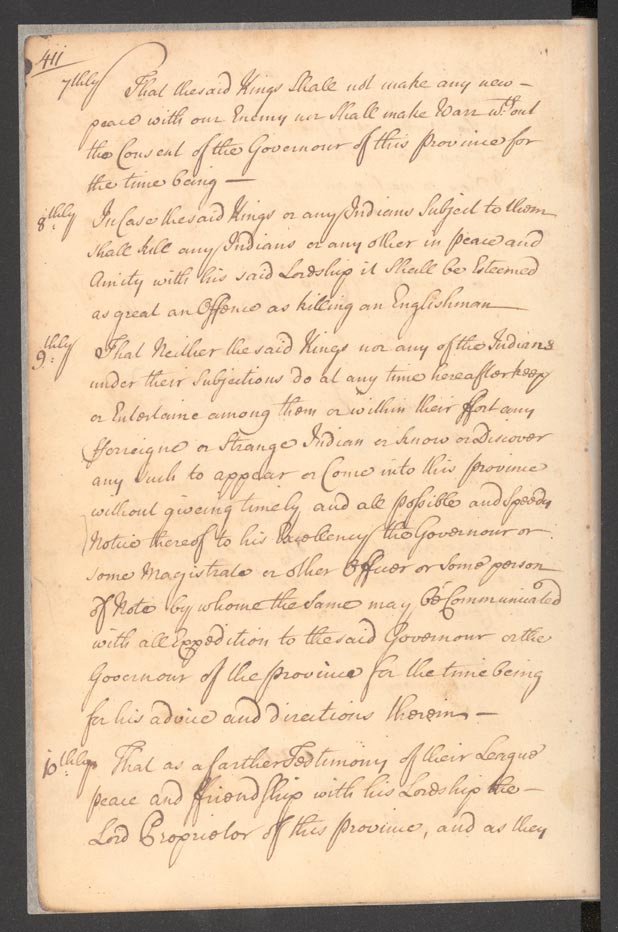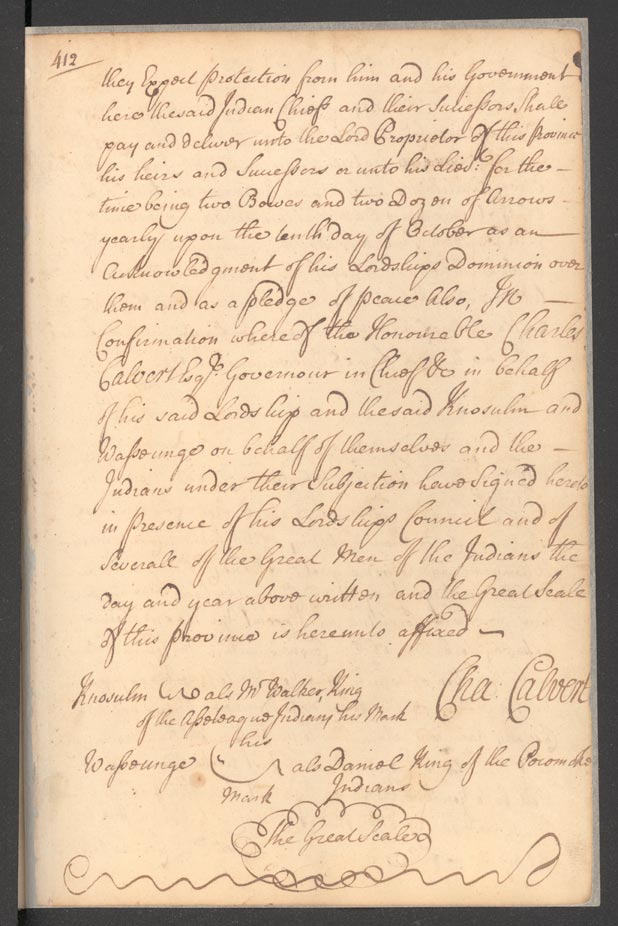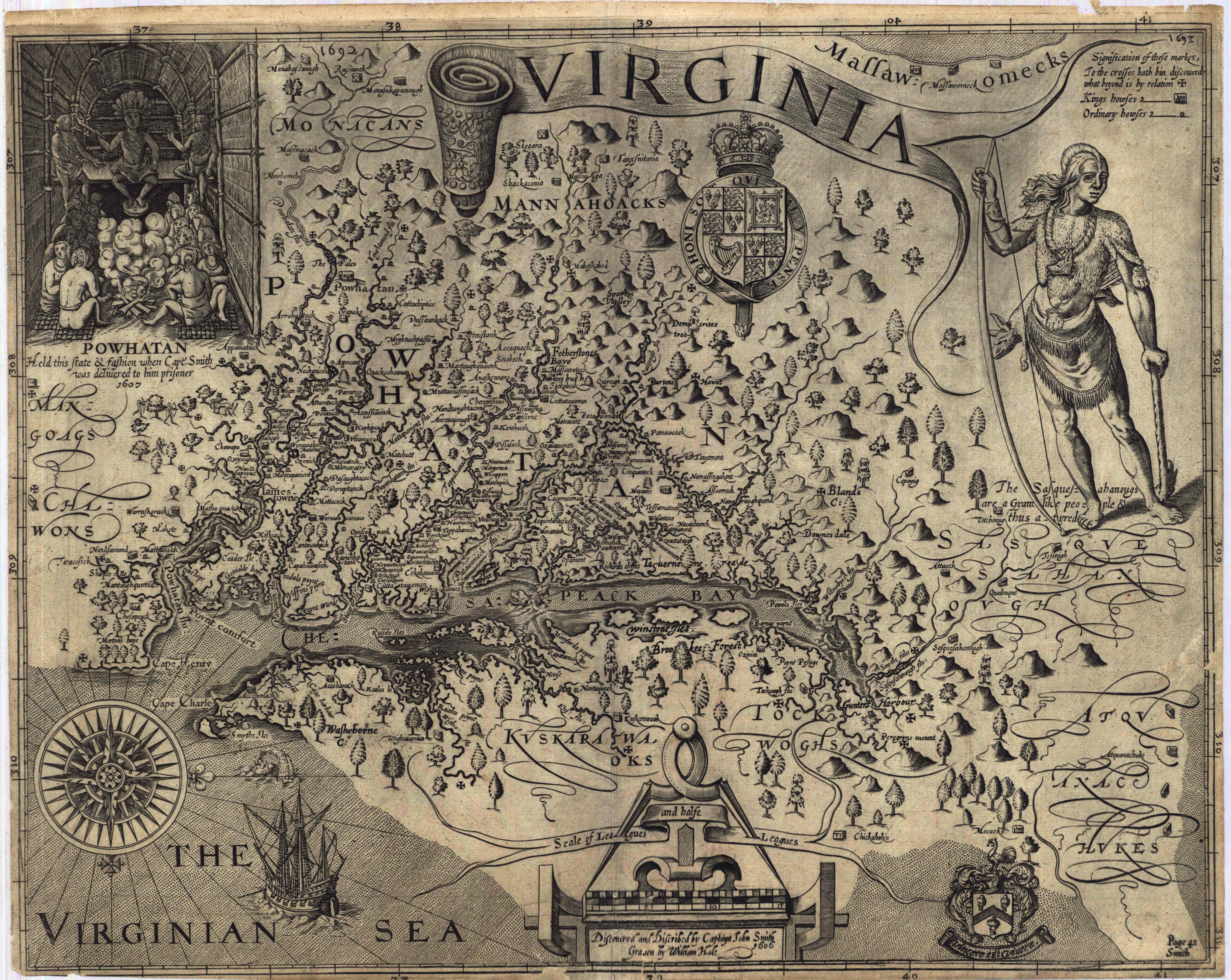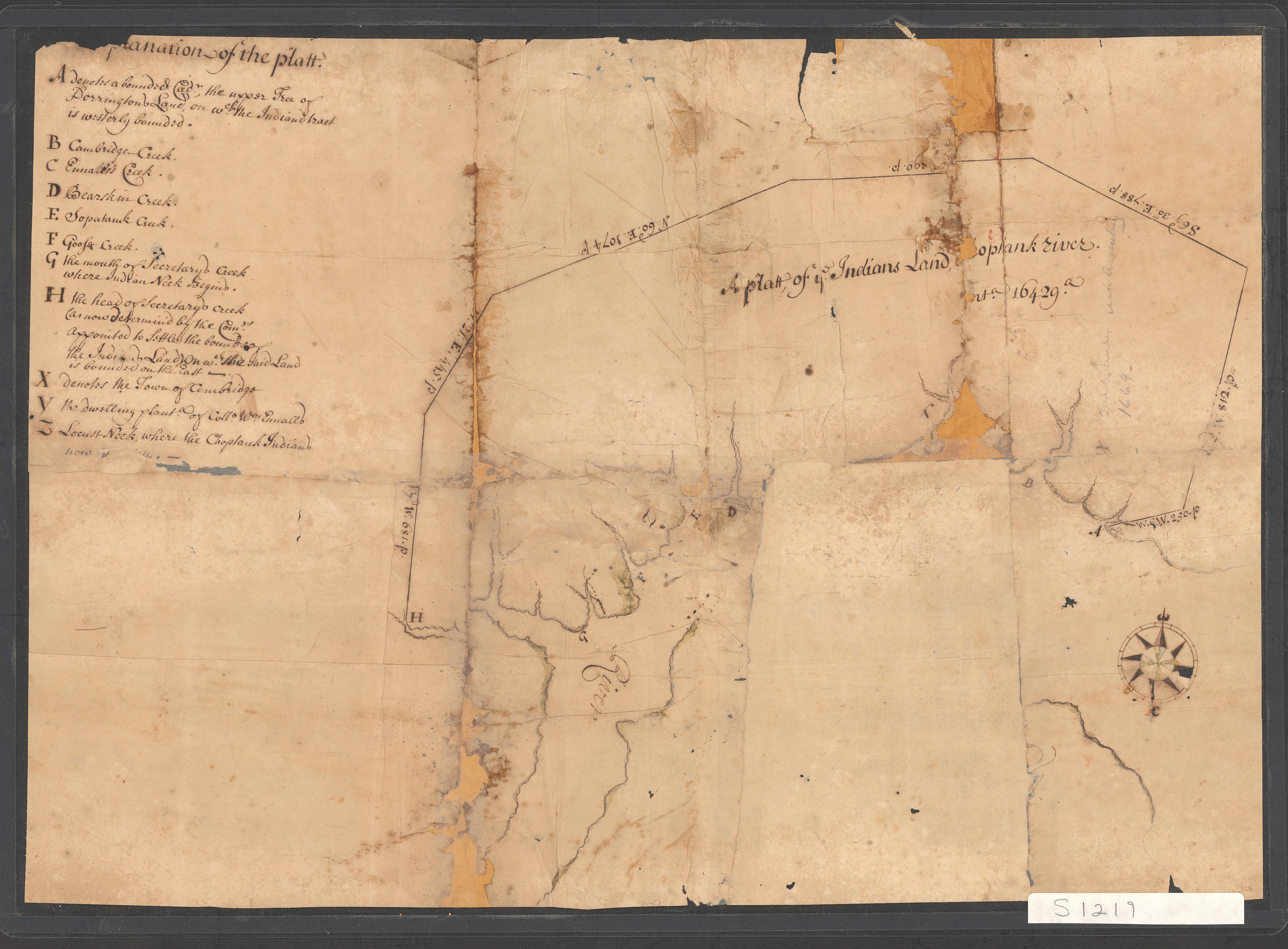Indigenous Archive Project for the Eastern Shore of Maryland
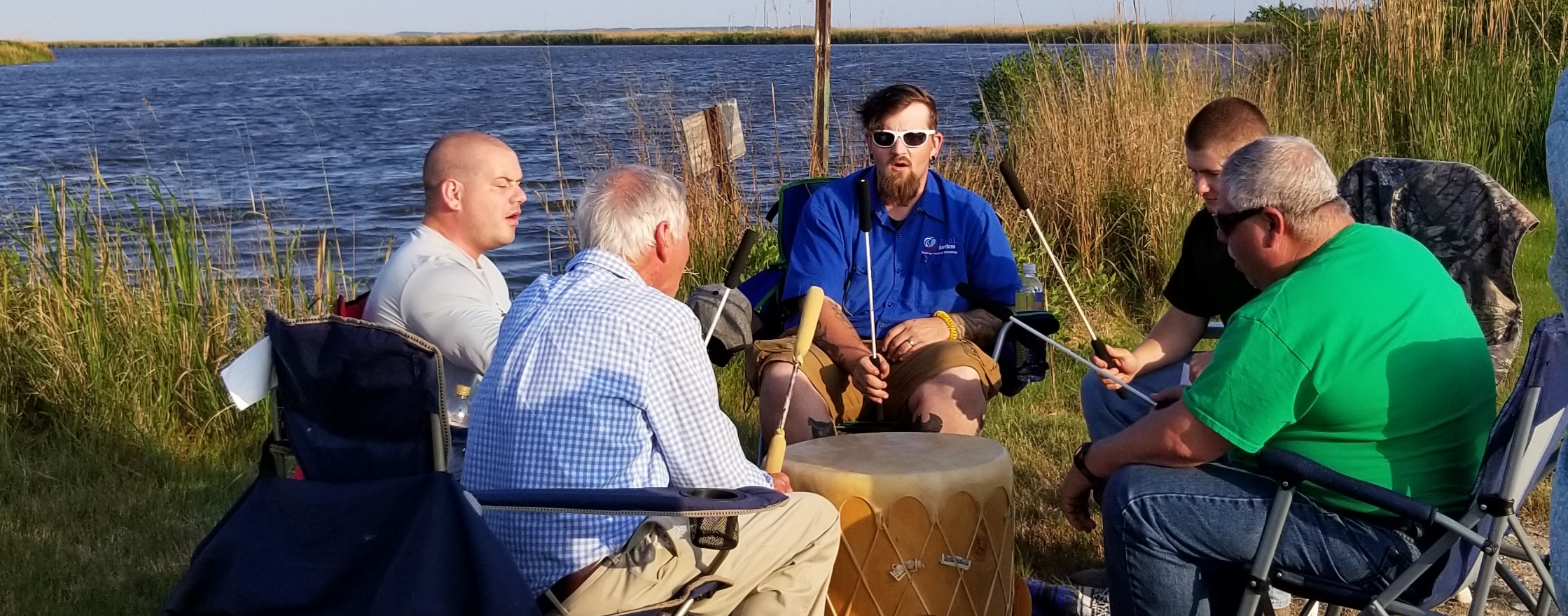
The Indigenous Archive Project for the Eastern Shore of
Maryland was developed by Maryland State Archives (MSA) to
fill the gap in Native American community archives. This
project aimed to record the contemporary lifeways and
history of Maryland Eastern Shore Tribal communities as well
as ones from the larger Delmarva region of both Delaware and
Virginia. We invited Elders and Tribal knowledge-keepers to
share their experiences in both formal and informal
interviewers. Project oral historian, Drew Shuptar-Rayvis
concluded that, “This project was largely a great success
due to the appropriate ways MSA chose to meet and work with
communities, great attention to detail was made to ensure
tribal citizens had full control of their interviews,
ability to edit and re-record their interviews if
dissatisfied, and the right to have transcripts of their
conversations.”
This project was funded in part
by a generous grant from the Maryland Heritage Areas
Authority. All transcriptions were created using AI and then
reviewed and corrected by archival staff, in cooperation
with each of the interviewees.
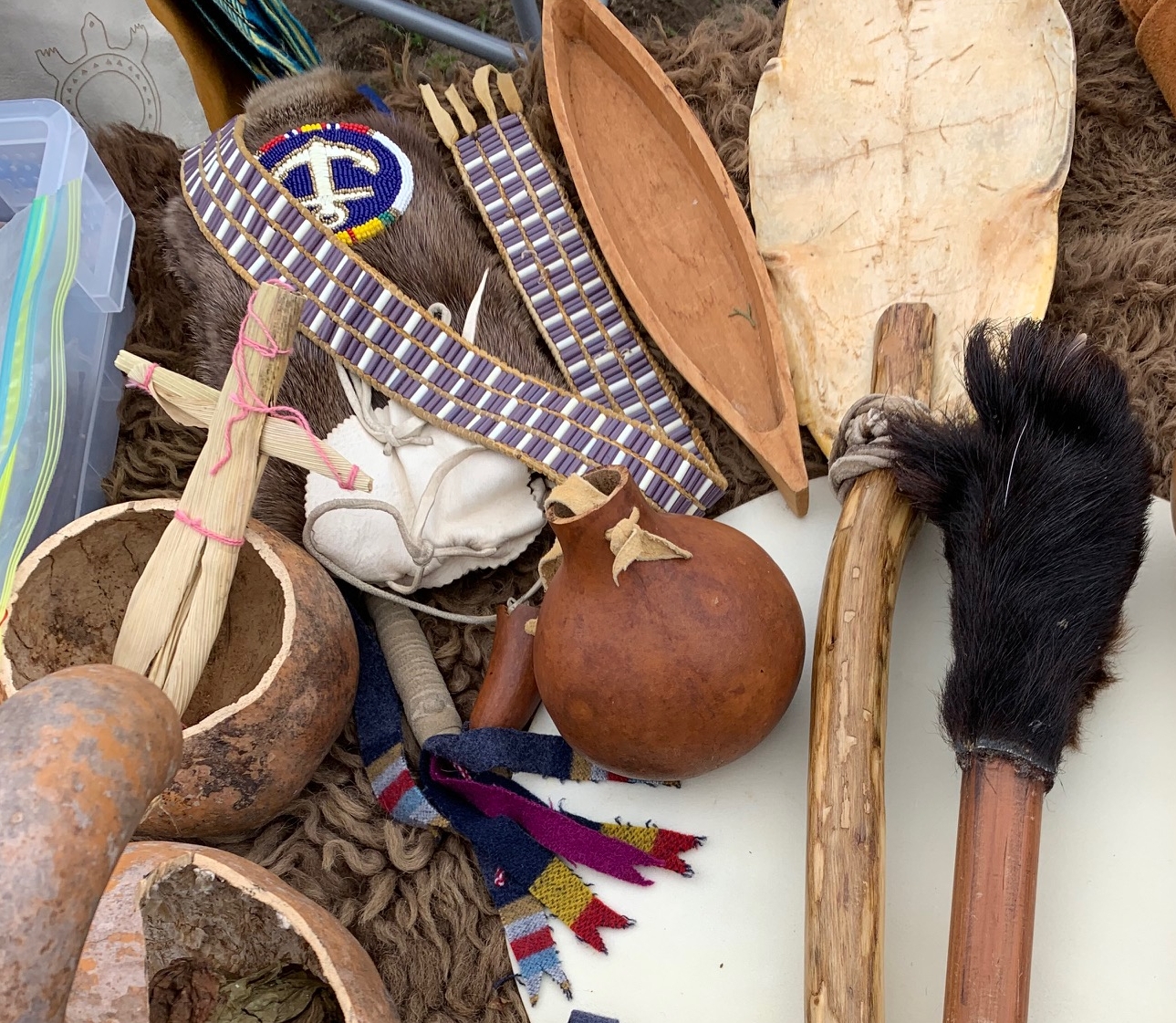
Beatrice “Bea” Johnson
(Nanticoke Indian Tribe)
March 16, 2024
- Citation: MSA SC 6417-1-11
- Date: March 16, 2024
- View Transcription Pages: Transcription
- Listen to Audio: Audio
Description:
Interview of Beatrice "Bea" Johnson, Nanticoke
Indian Tribe, for MHAA funded oral history
project.
Interviewer: Drew Shuptar-Rayvis.
Beatrice "Bea" Johnson of the Turtle
Clan explains how the waterfront has been
important to her and her whole family her whole
life. She also goes on to explain how people who
used to live along the Indian River left due to
financial hardships. She explains how community
members needed work to survive rather than
continuing their education. Johnson conveys that
she believes the land in which she has lived has
not changed since she was a little girl. Johnson
also goes on to explain that the government never
accepted the Nanticokes, and Indians in general,
as people. She explains that the "young folk" are
the future of the community and are changing. She
believes that the younger generations are now
fighting for what they believe in and are
demanding more from the government.

Warren "Toby" Jackson
(Nanticoke Indian Tribe)
March 16, 2024
- Citation: MSA SC 6417-1-12
- Date: March 16, 2024
- View Transcription Pages: Transcription
- Listen to Audio: Audio
Description:
Interview of Warren "Toby" Jackson, Nanticoke
Indian Tribe, for MHAA funded oral history
project.
Interviewer: Drew Shuptar-Rayvis.
Warren Jackson, also known as Toby
[Tah-bee], explains how his father's ancestors are
connected to the original founding members of the
community and how his mother was a Pennsylvanian.
This background led him to complete his high
school education in Philadelphia. He explains how
segregation of the 1950's contributed to his
childhood and adult years and experiences. Jackson
explains how environmental changes and land
development have contributed to the loss of land
and traditions, such as hunting. He also discusses
how the government and other Natives mistreat the
Nanticoke because they are not "full blooded"
Indians and still segregate them. Jackson
expresses the connections he has to the family's
burial grounds and how he needs to be a steward of
that land. He then explains the importance of
Rosedale Beach to his childhood and the amazing
and famous Black performers that came through the
Chitlin' Circuit. Lastly, Jackson wishes peace to
everyone disclosing how peace of mind aids him in
his aging years.

Norris "Buddy" Howard, Jr.
(Pocomoke Indian Nation)
January 19, 2024
- Citation: MSA SC 6417-1-13
- Date: January 19, 2024
- View Transcription Pages: Transcription
- Listen to Audio: Audio
Description:
Interview of Norris "Buddy" Howard, Jr., Pocomoke
Indian Nation, for MHAA funded oral history
project.
Interviewer: Drew Shuptar-Rayvis.
Mr. Howard starts by describing
multiple traditions and the importance of teaching
them to the public and future generations. Howard
goes on to discuss the survival of burial grounds
and the threat of land development and erosion. He
then discusses the misunderstanding of the public
who have misconceptions about Native life. Howard
describes the complexity of the Pocomoke
Paramountcy and the "scope and vibrance" of it,
including multiple lifeways that are still
important to the community today. Mr. Howard
conveys the history of the Pocomoke Nation very
deeply, especially pertaining to the first
European interactions. He also explains how
invasive species that were brought by the settlers
have changed the land. Lastly, Howard explains how
the generational divide of the Native population
is leading to the dying of lifeways and family
traditions and how it is important to educate to
keep them alive, despite Native migration taking
oral histories and tradition away with them.

Shane Rader
(Houma Nation of Louisiana, lifelong Eastern
Shore resident)
December 5, 2023
- Citation: MSA SC 6417-1-10
- Date: December 5, 2023
- View Transcription Pages: Part 1 | Part 2
- Listen to Audio: Part 1 | Part 2
Description:
Informal interview of Shane Rader, Houma Nation of
Louisiana, lifelong Eastern Shore resident, for
MHAA funded oral history project.
Interviewer: Drew Shuptar-Rayvis.
Mr. Rader discusses the history of
Virginia’s Eastern Shore and his family background
and experiences in addition to the history of
English colonization of the area and more modern
changes to the environment.
Mr. Rader and Mr. Shuptar-Rayvis talk about the Gingoteague and their connections to Chincoteague Island during the era of English colonization. Mr. Rader also shares his experiences of growing up in Greenbackville, Virginia and his family’s Houma heritage. He tells the story of his grandfather, who fled life in an Indian Boarding School in Central Pennsylvania to serve in the U.S. Navy in World War II, before moving to work at the Navy’s Wallops Island facility. Mr. Rader also addresses some of the changes he has witnessed in the watermen industry, including the declining oyster population and sea level rise. In the second part of the recording, Mr. Rader discusses the role of community elders in his life, particularly Grandfather Gray Hawk, who taught him silversmithing. He reflects about the changes to the Virginia Eastern Shore that have come with increasing tourism, particularly during the Pony Penning Days.

Black Corn Drew Shuptar-Rayvis
(Pocomoke Indian Nation)
October 6, 2023
- Citation: MSA SC 6417-1-8
- Date: October 6, 2023
- View Transcription Pages: Transcription
- Listen to Audio: Audio
Description:
Self-recorded interview of Drew Shuptar-Rayvis,
Pocomoke Indian Nation, for MHAA funded oral
history project.
Oral history by Drew Shuptar-Rayvis,
also known as Black Corn, of the Pocomoke Indian
Nation. Drew is harvesting Staghorn Sumac during
this self-recorded interview. He goes on to
explain the cultural significance of the Sumac to
the Pocomoke people. He also explains the
traditional practices of harvesting the Sumac.
Shuptar-Rayvis concludes with explaining where the
Sumac can grow and its seasonal growth patterns.
Also included with this interview are pictures of
the Sumac that he collected. (SEE Transcription)

Sam Doughty
(Pocomoke Indian Nation)
August 30, 2023
- Citation: MSA SC 6417-1-9
- Date: August 30, 2023
- View Transcription Pages: Part 1 | Part 2
- Listen to Audio: Part 1 | Part 2
Description:
Informal interview of Sam Doughty, Pocomoke Indian
Nation, for MHAA funded oral history project.
Interviewer: Drew Shuptar-Rayvis.
Mr. Doughty takes Mr. Shuptar-Rayvis
on a narrated driving tour of the peninsula west
of Princess Anne, MD through Deal Island State
Wildlife Management Area towards Deal Island where
Mr. Doughty grew up. He speaks about changes to
the land, waterways, and culture during his
lifetime.
As he drives, Mr. Doughty discusses the small towns including Oriole, Champ, Chance, and Rumbly, en route through the Deal Island Historic District along the Manokin River, providing descriptions of sights and bodies of water. He describes how he got his start in working as a waterman. He also observes how significant lifeways such as duck hunting, fishing, crabbing, and dredging oysters have been impacted by sea level rise, population increase, and other modern factors.

Tom Bradshaw
(Nause-Waiwash Band of Indians)
August
18, 2023
- Citation: MSA SC 6417-1-6
- Date: August 18, 2023
- View Transcription Page: Transcription
- Listen to Audio: Audio
Description:
Interview of Tom Bradshaw, Nause-Waiwash, for MHAA
funded oral history project.
Interviewer: Drew Shuptar-Rayvis.
Tom Bradshaw talks about the loss of
traditions, the concept of Native Americans
disappearing, and the changes in the community and
industries.
Mr. Bradshaw discusses how holiday traditions and lifeways such as muskrat trapping, fishing, and crabbing have changed in the past few generations in Dorchester County communities, like Toddville. He reflects on discovering his Indigenous heritage through genealogy and the problems of erasure and stereotyping of local Indigenous communities. He names the loss of dance as a community tradition in particular. He also laments the fact that future generations are not working the waterways and in the timber industry as he did. He narrates his experiences of living and working south of Vienna, Maryland near the Nanticoke River, where he feels strongly connected to his ancestors. He shares the importance of teaching school children about Indigenous cultures to current and future generations.

Zach Cole
(Nause-Waiwash Band of Indians) August 16,
2023
- Citation: MSA SC 6417-1-5
- Date: August 16, 2023
- View Transcription Page: Transcription
- Listen to Audio: Audio
Description:
Interview of Zach Cole, Nanticoke and
Nause-Waiwash, for MHAA funded oral history
project.
Interviewer: Drew Shuptar-Rayvis.
Zach Cole talks about the lack of
recognition, the spiritual importance of the land
and water, and the power of culture.
Mr. Cole talks about the significance of muskrat meat and crabs as traditional foods. He shares about the work that he and his Tribe are undertaking to restore the “Wesley Church” [Hughes African Methodist Episcopal Chapel] to become Nause-Waiwash Longhouse. He mentions the Tribes’ struggles to protect their ancestral remains from graverobbing and archaeological excavation. He relates stories about Chief Sewell Winter Hawk Fitzhugh, who took him on canoe and camping trips, teaching him foraging for food from the waterways and plant life. Mr. Cole shares his perspectives on the history of Chicone Village and the Choptank Tribe, as well as his spiritual connections to his homelands. He discusses changes that he has observed in powwows and festival traditions and stresses the importance of community involvement and preservation.

Chief Donna Abbott and Brenda Holotik
(Nause-Waiwash Band of Indians)
August
14, 2023
- Citation: MSA SC 6417-1-7
- Date: August 14, 2023
- View Transcription Pages: Part 1 | Part 2 | Part 3
- Listen to Audio: Part 1 | Part 2 | Part 3
Description:
Interview of Chief Donna Wolf Mother Abbott and
Brenda Holotik, Nause-Waiwash, for MHAA funded
oral history project.
Interviewer: Drew Shuptar-Rayvis.
In Part One of the interview, Chief
Donna Wolf Mother Abbott and Brenda Holotik of the
Nause-Waiwash Community explain their perspectives
on how Native burial sites should be respected and
talk about the importance of restoring the Wesley
Chapel [Hughes African Methodist Episcopal Chapel]
which will become the Nause-Waiwash council house.
They discuss how the Nause-Waiwash's education
mission can sometimes also complicate the
community’s interactions with people who want to
take advantage of them.
In the second part of the informal interview,
Chief Donna, Brenda, and Drew discuss
environmental changes to the marshland, including
introduced plant species, the loss of trees, and
hunting, especially muskrat trapping. Donna
mentions how her uncle, Elihu Abbott (Brenda's
father), was a well renowned muskrat skinner.
Brenda and Donna talk about the genealogy of
family members and other tribal ancestors buried
at the local cemeteries.
In the third part of the interview, the group
discusses the fur industry and the timeline of the
industry's decline, and the broader economic
decline of the area of which they were driving.
The group concludes by talking about personal
experiences with discrimination and media
magnifications and portrayals of Native Americans.

Donna Abbott, Chief/Tallek
(Nause-Waiwash Band of Indians)
August
14, 2023
- Citation: MSA SC 6417-1-3
- Date: August 14, 2023
- View Transcription Page: Transcription
- Listen to Audio: Audio
Description:
Interview of Donna Abbott, Nause-Waiwash, for MHAA
funded oral history project.
Interviewer: Drew Shuptar-Rayvis.
Chief Donna talks about the importance
of hunting and trapping to her culture, as well as
the imperfect perception of Native Americans
today.
Chief Donna identifies muskrat trapping as a significant tradition for her family and community, and observes how environmental changes have affected the muskrat population. She also observes that erosion and sea-level rise threaten and destroy places such as Native gravesites and the Tribe’s past longhouse. She discusses the difficulties that her Tribe faces with erasure and stereotyping of Indigenous Peoples, and the paradox of governments seeking to control Indigenous “recognition” when it's an inherent part of someone’s self and community identities.

Philip Goldsborough
(Pocomoke Indian Nation)
July 22,
2023
- Citation: MSA SC 6417-1-2
- Date: July 22, 2023
- View Transcription Page: Transcription
- Listen to Audio: Audio
Description:
Interview of Philip Goldsborough, Pocomoke Indian
Nation, for MHAA funded oral history project.
Interviewer: Drew Shuptar-Rayvis.
Mr. Goldsborough speaks on the
importance of the waterways in Eastern Maryland
and how the land and water are central to his
culture.
A life-long resident of Crisfield, Mr. Goldsborough talks about preserving the tradition of making lithic (stone) tools by hand, flint-knapping, to craft tools like the ones he found on beaches in his youth. He stresses the importance of protecting the waterways along the Pocomoke and Annemessex Rivers from environmental changes and sea-level rise, in order to preserve the cultural traditions of hunting and fishing.

Morning Star June Robbins
(Nanticoke Indian Tribe)
July 18, 2023
- Citation: MSA SC 6417-1-4
- Date: July 18, 2023
- View Transcription Pages: Transcription
- Listen to Audio: Audio
Description:
Interview of Morning Star June Robbins, Nanticoke
Indian Tribe, for MHAA funded oral history
project.
Interviewer: Drew Shuptar-Rayvis.
June Robbins, also known as Morning
Star, explains the history and culture of the
Nanticoke Tribe highlighting important dates in
the tribe's development. Ms. Robbins highlights
how things have changed, even in the last century,
for the Nanticoke Nation. As the eldest dancer in
the tribe, Robbins elaborates the importance of
the Powwow and what it would mean to her and the
Nanticoke people for the Powwow to return to the
tribal homelands in Delaware. Robbins is also the
coordinator for the museum in the Nanticoke
community and provides insights to other historic
buildings that were important to the Nanticoke
peoples.

Cheryl Howard Doughty
(Pocomoke Indian Nation)
July 17, 2023
- Citation: MSA SC 6417-1-1
- Date: July 17, 2023
- View Transcription Page: Transcription
- Listen to Audio: Audio
Description:
Interview of Cheryl Howard Doughty, Pocomoke
Indian Nation, for MHAA funded oral history
project.
Interviewer: Drew Shuptar-Rayvis.
Cheryl Howard Doughty stresses the
importance of preserving her Indigenous culture
and rebuilding the history as accurately as
possible.
Ms. Doughty talks about her connections to present-day Wicomico, Worcester, and Somerset Counties, and the importance of teaching others to acknowledge and appreciate Indigenous histories of the Pocomoke homelands. Reclaiming her culture and sharing that knowledge with others is significant for her, since she inherited her responsibility as a Tribal storyteller from her uncle. She argues for Native Tribes being given a voice in local and state planning for cultural heritage and natural resources, and in encouraging good environmental stewardship.
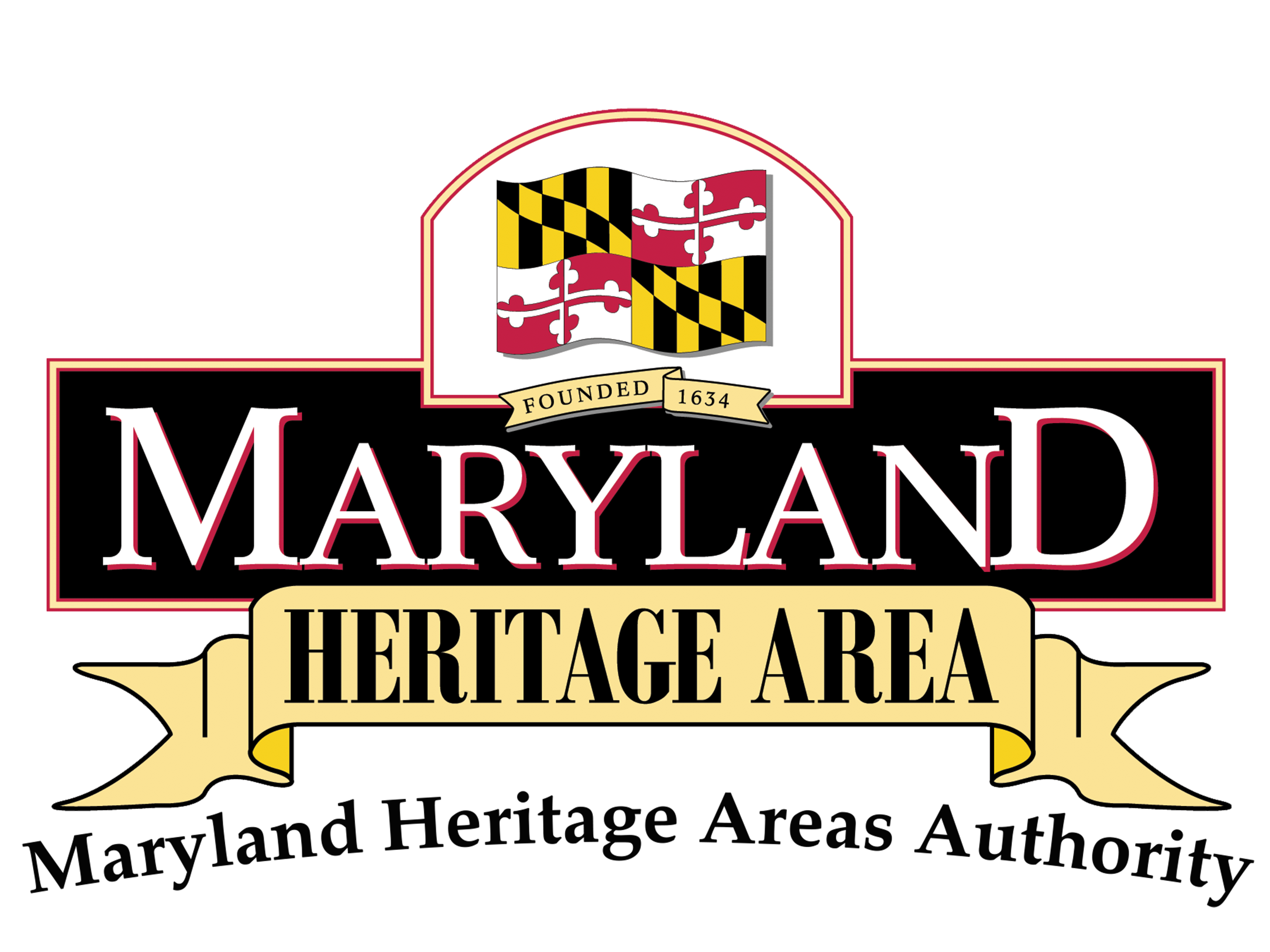
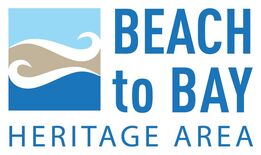

This project has been financed in part with State funds from the Maryland Heritage Areas Authority, an instrumentality of the State of Maryland. However, project contents or opinions do not necessarily reflect the views or policies of the Maryland Heritage Areas Authority.
This web site is presented for reference purposes under the doctrine of fair use. When this material is used, in whole or in part, proper citation and credit must be attributed to the Maryland State Archives. PLEASE NOTE: The site may contain material from other sources which may be under copyright. Rights assessment, and full originating source citation, is the responsibility of the user.
© Copyright 2024 Maryland State Archives

